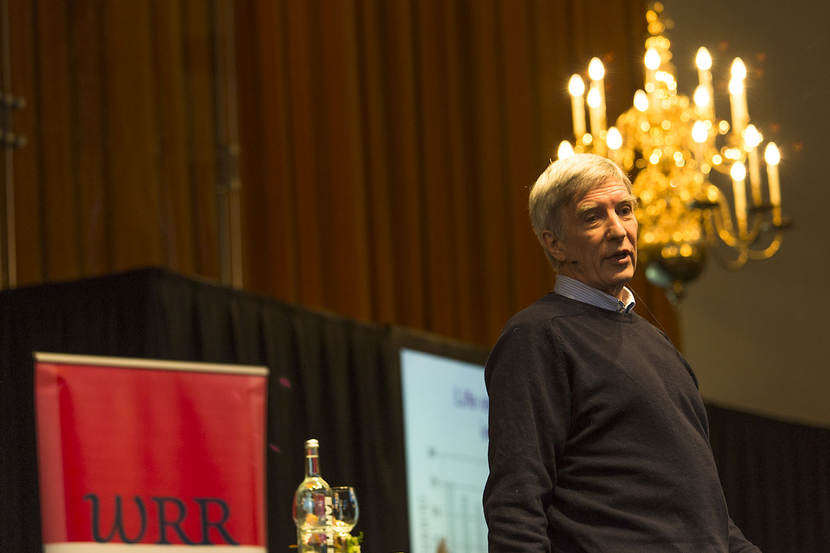WRR Lecture 2013: How much (in)equality can societies sustain?
The theme of the WRR Lecture 2013, which took place on 28 November, was social inequality.
Richard Wilkinson
During the WRR Lecture 2013, guest speaker Richard Wilkinson talked about the consequences of inequality and presented an international comparison of inequalities. Three professors then explored the situation in the Netherlands. Is the degree of inequality increasing? And if it is, does that matter? According to Richard Wilkinson, author of The spirit level, the consequences of inequality are not only felt at the bottom of the social ladder. Increasing social inequality is a problem for everyone: for example, health status declines across the board.
Situation in The Netherlands
Turning to the situation in the Netherlands, Paul de Beer (Utrecht University) argued that income differentials have increased in recent decades, but especially the gap between the highest and lowest income groups. He showed that the government has reduced inequality through taxation. According to Bas van Bavel (University of Amsterdam (UvA)), it is not so much income differentials as asset differentials that have widened. Those differentials are very wide in the Netherlands by international standards, even compared with the United States and the United Kingdom. Such asset differentials have major consequences. Karien Stronks (UvA/AMC Academic Medical Centre) concluded by arguing that the wide health differentials in the Netherlands are increasing further, especially in relation to education, income and ethnicity. All is quiet on the policy front, however, because intervention is not seen as legitimate.
Social dividing lines
The WRR Lecture 2013 falls within the WRR theme 'Social dividing lines'. A publication will appear as part of this theme in the spring of 2014 devoted to the subject of money and (in)equality. It will look at income differentials, asset differentials and social mobility in the Netherlands.
